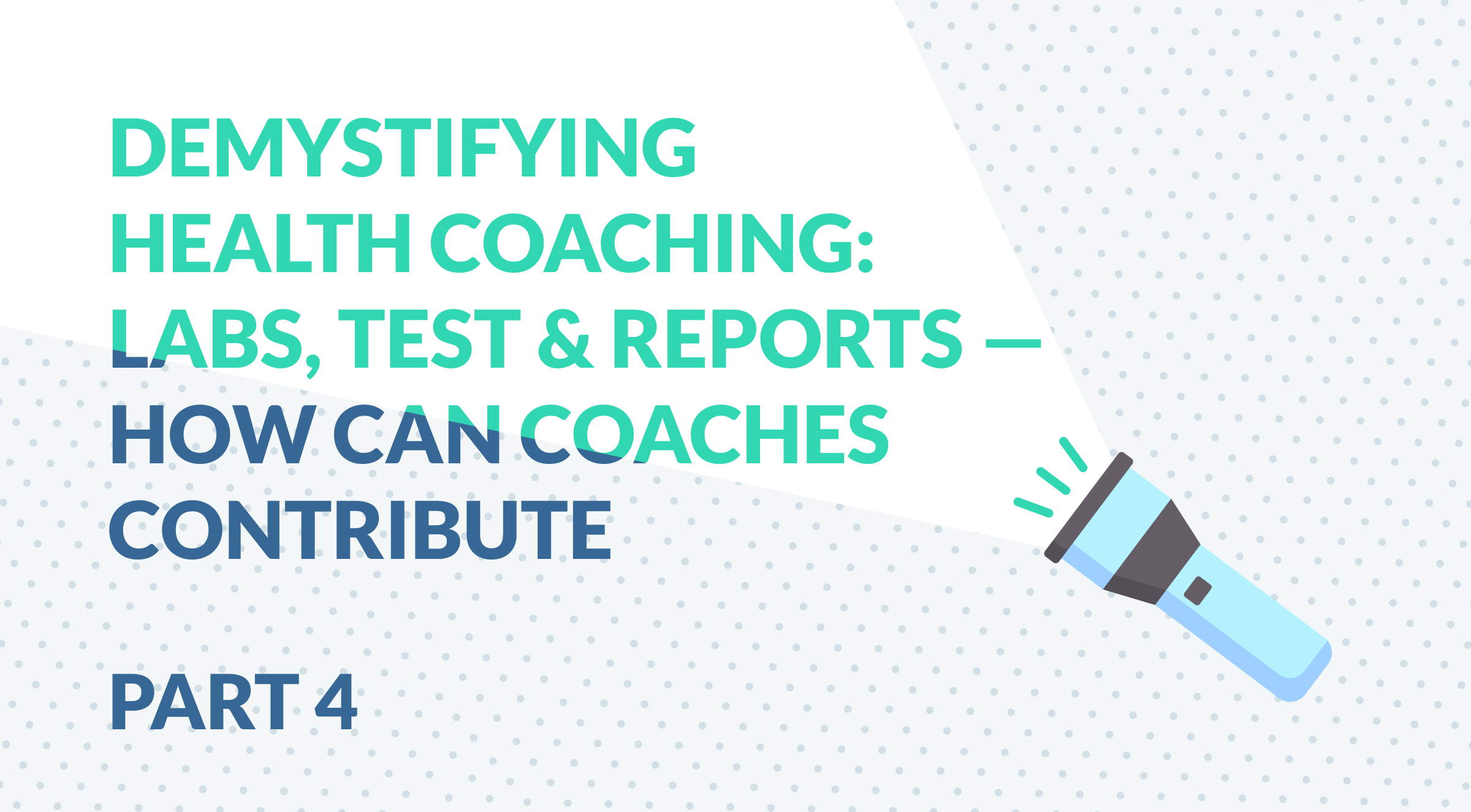
In this series on Demystifying Health Coaching, we’re excited to offer clarity on some common misconceptions we often encounter in the health and wellness worlds. These articles are meant to generate important dialogues about the past, present and future of health coaching – and without conversation there is no dialogue! We look forward to thoughts from our community on these articles and suggestions for future topics.
There’s absolutely no question that health coaches are a critical component of our wellcare system. No matter what clients might be coping with or looking to achieve, from managing a healthy and balanced lifestyle while living with lupus to bringing more movement into their daily routines, health coaches keep them on track to achieve these important health successes in the short and long term.
Health coaches work in tandem with other healthcare professionals like doctors, registered dietitians, registered nurses, patient advocates and more. For health coaches and informed clients alike, it’s important to understand a coach’s scope of practice and how they fit into this overall health ecosystem. Today, we’ll start tackling scope of practice, specifically, where health coaches fit in when it comes to client labs, tests, and reports.
What is scope of practice?
Your scope of practice, as a health coach, are the services, procedures and actions that you’re qualified to do. Health coaches must all abide by similar principles surrounding your client programs (although some certifying bodies will offer their own definitions, like the NBHWC). It’s important to note that some health coaches also have additional credentials, like a registered nurse or registered dietitian, which would broaden their scope of work based on their roles.
What is the health coach’s scope of practice?
Generally speaking, the scope of practice of a health coach includes supporting and empowering clients through a series of techniques like motivational interviewing, cognitive coaching and more so that they can pursue mutually defined goals that are actionable, achievable and help them live healthier lives. Partnering with a health coach in this way can be incredibly effective, because they help clients translate health results delivered by their doctors, nurses, physician’s assistants and more into day-to-day actions. Health coaches truly help achieve and transform health outcomes.
What is outside a health coach’s scope of practice?
Most importantly, health coaches cannot diagnose or treat health conditions and they cannot interpret the results of your lab work, imaging tests or discharge reports. They can help you feel empowered to ask your health care provider for a clear explanation of your results along with their suggestions for treatment/lifestyle adjustments to improve your condition. They can encourage you to keep track of your medical records and take stake in your health journey starting at the doctor’s office, but especially beyond the doctor’s office.
How can I explain this to my clients?
Sometimes, the hardest part about being a health coach is helping clients understand why partnering with us can be so life-changing. Here’s our take: No, health coaches can’t interpret the specifics of your medical results or medical history, but they can guide you to pursue your doctor’s suggestions based on their interpretation of your results. If you feel comfortable you can share notes from your doctor’s visits with your health coach (because health coaches do honor and protect your privacy) and they can help you define actionable goals to pursue better health outcomes. In essence, health care practitioners tell you what to do, but health coaches show you how to do it and stick with you to make it happen. Without coaches, this critical step is less frequently a reality.


